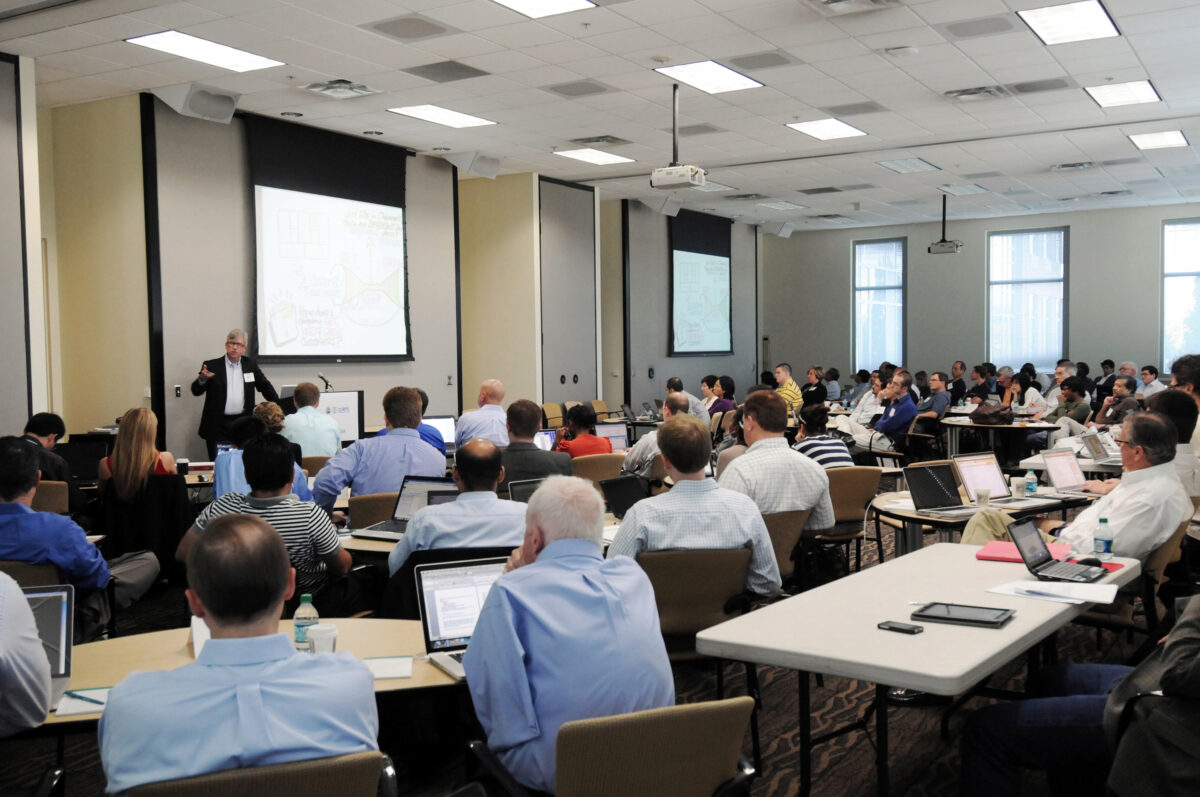
The National Science Foundation (NSF) has announced that the Georgia Institute of Technology will be a founding network node for its Innovation Corps (I-Corps) program, which aims to develop scientific and engineering discoveries into useful technologies, products and processes.
The I-Corps program connects NSF-funded scientific research with the technological, entrepreneurial and business communities to help create a stronger innovation ecosystem that couples scientific discovery with technology development and societal needs. Leveraging experience and guidance from established entrepreneurs and a targeted curriculum, I-Corps attendees learn to identify valuable product opportunities that can emerge from academic research.
Beyond Georgia Tech, the NSF will also establish an I-Corps network node at the University of Michigan. By adding these two institutions to its I-Corps program – which began at Stanford University – the NSF will replicate the I-Corps curriculum across the country and begin creating a national network to identify emerging technology concepts that have potential to transition into economically viable products.
“One of Georgia Tech’s strengths is its ability to provide the links needed to help move scientific research quickly from the lab to products coming off the manufacturing floor,” said G. P. “Bud” Peterson, president of Georgia Tech. “We are honored to partner with NSF in expanding I-Corps’ ability to help the entrepreneurial and business communities and boost economic growth.”
With a three-year, $1.5 million grant, Georgia Tech will research, analyze and leverage data from the I-Corps program to develop an understanding of how academic institutions can improve support for innovation ecosystems and how the I-Corps network can enable new collaborations in geographic regions to support commercialization opportunities. Georgia Tech will also teach the I-Corps curriculum to cohorts of NSF-designated teams from around the United States.
“Through our translation-friendly technology transfer policies and our 11-year-old VentureLab program, Georgia Tech has built a repeatable process for successfully generating new companies from research at the university,” said Stephen Fleming, a Georgia Tech vice president and executive director of the Enterprise Innovation Institute. “Now we will be able to share with participants of the NSF I-Corps program our experience and commitment to developing best practices in the science of vetting ideas for their suitability to be successful startups.”
One of two seven-week summer 2012 I-Corps classes began July 9 at Georgia Tech and the fall class will begin at Georgia Tech on Oct. 1, 2012. Spanning a broad range of potential products and research areas, the 27 teams in the summer class are participating in a specially designed training curriculum, obtaining guidance and mentoring from private- and public-sector experts – including technology developers, business leaders and venture capitalists. They have received $50,000 grants to begin assessing the commercial readiness of their technology concepts.
Beth Mynatt, a professor in the Georgia Tech School of Interactive Computing, and Ioannis Brilakis, an assistant professor in the Georgia Tech School of Building Construction and the School of Civil and Environmental Engineering, have previously participated as principal investigators in the I-Corps program.
“The I-Corps program provides a critical missing piece for a university committed to translating research insights into commercial innovations,” said Mynatt. “Working in three-person teams that included research expertise, entrepreneurial focus and business mentorship provided us with a focus on identifying commercial value. The method to the madness is testing ‘hypotheses’ of possible value instead of trying to build a fictitious business model. The best teams ‘pivot’ rapidly by testing these hypotheses and focusing on specific opportunities.”
Mynatt led a team developing “SmartMenu,” an online tool for helping diners choose the best meals for their specific needs. “We honed our product ideas and made numerous discoveries along the way,” she added. “Access to business mentors in the program was invaluable and resulted in a number of important introductions.”
The Georgia Tech I-Corps network node will expand the NSF’s cadre of innovation experts that are mentoring on effective practices for leveraging outcomes of basic research.
“Academic researchers already have many skills valuable for success in business, such as critical thinking, teamwork and an ability to move in a new direction and learn when a hypothesis proves false,” says Errol Arkilic, NSF program director for I-Corps. “The NSF I-Corps builds upon that expertise, introducing researchers to the business community and teaching them to seek, and speak to, the needs of potential customers.”
Nearly 50 teams – composed of academic researchers, student entrepreneurs (undergraduates, graduate students and post-docs), and business mentors – have participated so far in the six-month I-Corps program. The curriculum is a hypothesis-based approach to assessing technological readiness that combines two site-based short courses, extensive online coaching, and hands-on outreach to potential customers. I-Corps merges the structured coursework with guidance from NSF program officers and leading entrepreneurs who have committed their time to the program.
The Innovation Corps is supported by the National Science Foundation, the Ewing Marion Kauffman Foundation, and the Deshpande Foundation. For more information, see: www.nsf.gov/i-corps.
Research News & Publications Office
Media Relations Contacts: Georgia Tech – John Toon (404-894-6986)(jtoon@gatech.edu) or National Science Foundation – Josh Chamot (703-292-7730)(jchamot@nsf.gov).
Writer: Abby Robinson
